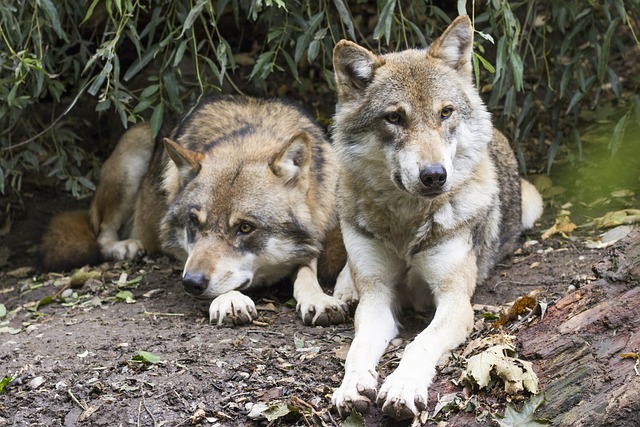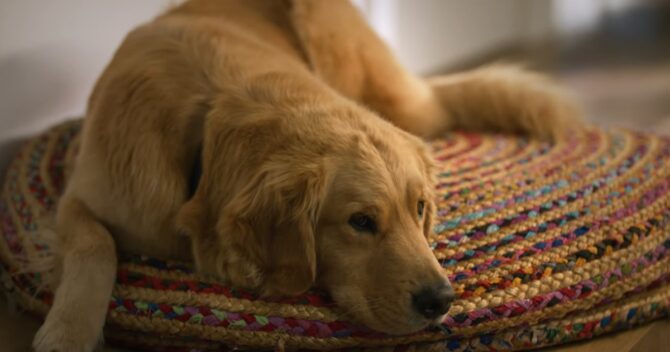When considering bringing a furry friend into your home, the choice between a Maltese and a Poodle can indeed be a tough one. Both are renowned for their distinctive appearances and friendly dispositions, making them fabulous companions.
This article will discuss the nuanced differences between these two beloved breeds, exploring their origins, characteristics, grooming needs, health issues, and lifestyle compatibility to aid you in making an informed decision.
Origin and History
Exploring the origins and history of a breed can provide insights into their behaviors, temperament, and needs. The Maltese and the Poodle hail from different backgrounds, each with unique historical significance and evolution.
Maltese: The Ancient Lap Dog
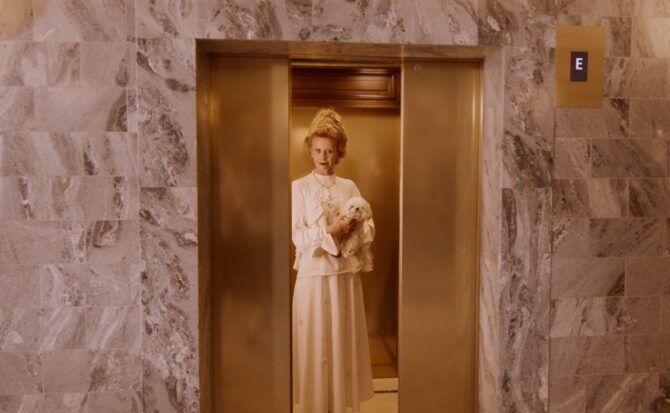
The Maltese, named after the island of Malta, has a history dating back over 2000 years and is known for its luxurious long white coat. This breed has been cherished by aristocrats, royalty, and artists throughout history, and its depictions can be found in ancient Greek, Roman, and Egyptian art.
They were developed to be the companions of wealthy and cultured families, epitomizing luxury and sophistication.
- Aesthetic and Sociable
- Favored by Nobility and Artists
- Companion Dog
The breed’s primary role has always been that of a companion. Their loving and affectionate nature, coupled with their petite size, makes them ideal lap dogs, craving attention and human interaction.
Poodle: The Intelligent Performer
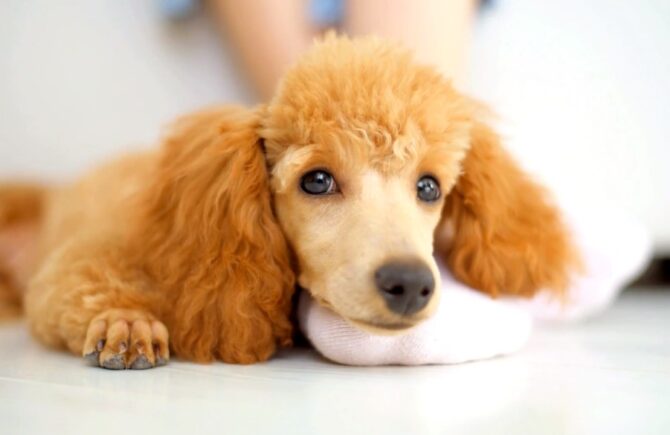
The Poodle is known for its intelligence and elegance and comes in three sizes: Standard, Miniature, and Toy. Originating from Germany, the Poodle was initially bred as a water retriever dog, with its distinctive coat serving to protect its joints and vital organs from the cold water.
- Highly Intelligent and Trainable
- Water Retriever Dog
- Recognizable by its Unique Coat
Poodles have always been associated with performing and entertainment due to their trainability and agility. They were popular in circuses and have been the beloved pets of many celebrities and royal figures throughout history.
Physical Characteristics and Temperament
Understanding the physical characteristics and temperament of Maltese and Poodle is crucial when determining which breed aligns best with your lifestyle, preferences, and ability to meet their needs.
Maltese: Petite and Affectionate
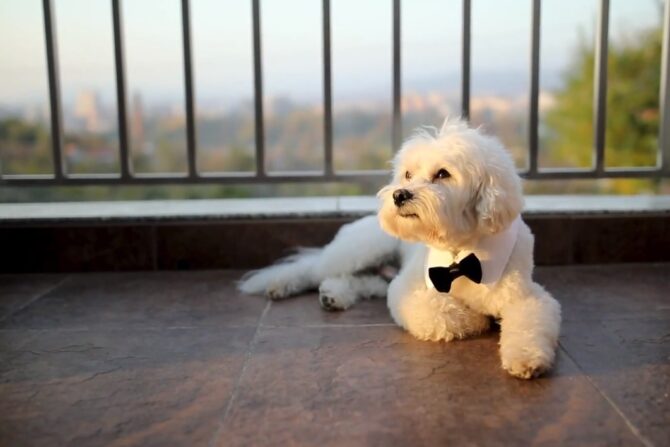
The Maltese is small in stature, typically weighing less than 7 pounds, with a coat of long, silky, pure white hair. Despite their delicate appearance, they are known for their bold and fearless nature, often acting larger than their size.
- Small and Lightweight
- Long, Silky White Coat
- Bold and Fearless Nature
Maltese dogs are affectionate, loving, and devoted to their owners. They thrive on human interaction and can develop separation anxiety if left alone for long periods. They are suited to those who can dedicate time and attention to their companionship needs.
Poodle: Elegant and Adaptable
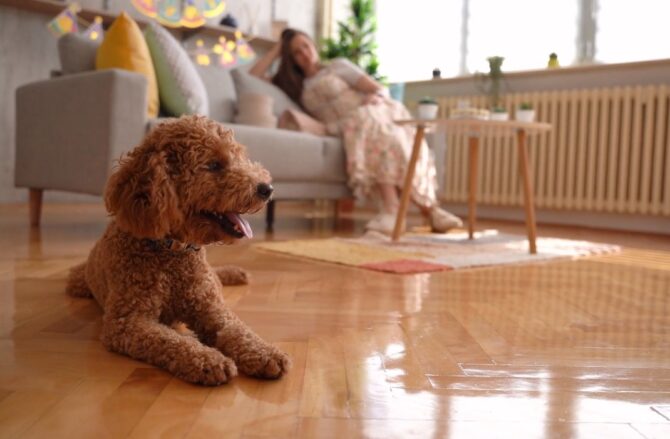
Poodles are recognized by their curly, dense coat, which is hypoallergenic, making them an excellent choice for allergy sufferers. They are versatile in size, adaptable, and known for their intelligence and trainability, excelling in obedience training.
- Curly, Hypoallergenic Coat
- Available in Three Sizes
- Intelligent and Obedient
Poodles are energetic, requiring regular exercise and mental stimulation to prevent boredom and destructive behavior. They are sociable and get along well with children and other animals, making them suitable for various household types and living conditions.
Grooming and Health
Grooming and health are pivotal considerations in selecting a breed. Both Maltese and Poodles have specific grooming requirements and predispositions to certain health conditions that prospective owners should be aware of.
Maltese: Regular Grooming and Dental Care
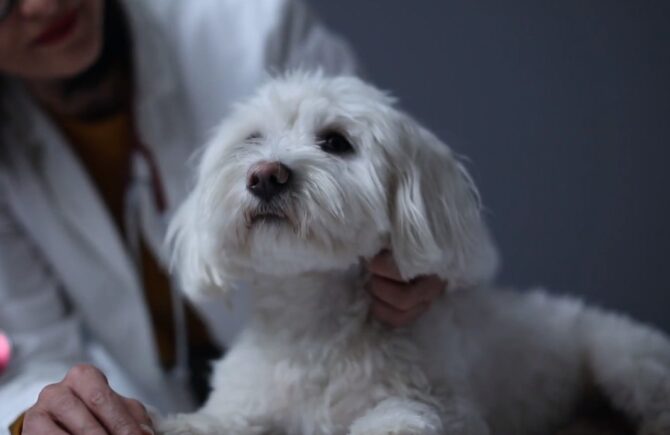
Maltese require regular grooming to maintain their long, silky coat, including daily brushing to prevent matting and tangling. Their eyes are prone to tear staining, necessitating frequent cleaning.
- High Grooming Needs
- Prone to Tear Staining
- Requires Regular Dental Care
Maltese are susceptible to dental issues due to their small mouths, making regular dental care crucial. They are also prone to certain genetic conditions, such as liver shunt and patellar luxation, which prospective owners should monitor.
Poodle: Extensive Grooming and Exercise
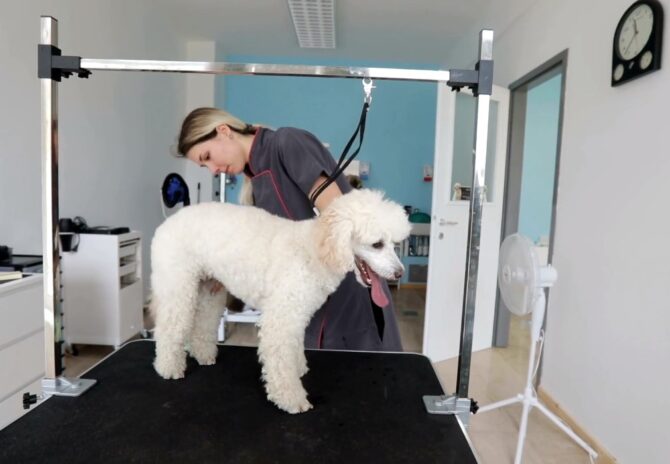
Poodles have a dense, curly coat that requires regular grooming, including clipping every 4-6 weeks to prevent matting. They are prone to ear infections due to their floppy ears, which require routine cleaning and checking.
- Requires Professional Grooming
- Prone to Ear Infections
- Needs Regular Exercise
Poodles are generally healthy but can be prone to specific health issues such as hip dysplasia, progressive retinal atrophy, and epilepsy. Regular veterinary check-ups, a balanced diet, and adequate exercise are essential to maintain their overall well-being.
Lifestyle Compatibility
Lifestyle compatibility is paramount when choosing a dog breed. Whether you lead an active lifestyle or prefer a more relaxed pace, understanding the needs and preferences of Maltese and Poodle can ensure a harmonious coexistence.
Maltese: Suited for Indoor Living and Companionship

Maltese are well-suited to apartment living due to their small size and lower exercise needs. They are content with short walks and indoor play. They crave companionship and are happiest when they can spend most of their time with their owners.
- Ideal for Apartment Living
- Lower Exercise Needs
- Craves Human Companionship
For those who work long hours or travel frequently, considering a pet sitter or arranging for companionship is crucial to prevent separation anxiety and stress in Maltese. Their sociable nature makes them get along well with other pets.
Poodle: Adaptable to Various Lifestyles
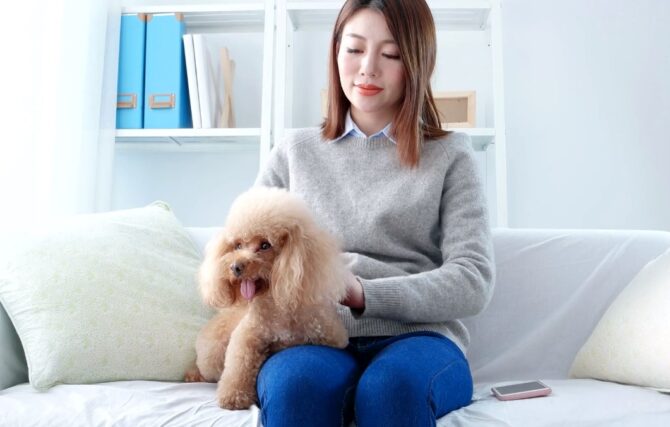
Poodles are adaptable to various living conditions, thriving both in apartments and houses with yards. They require regular exercise and mental stimulation due to their high intelligence and energy levels.
- Adaptable to Living Conditions
- Requires Regular Exercise and Stimulation
- Sociable and Good with Children
Whether you lead an active lifestyle or have a family with children, Poodles can be a suitable companion, getting along well with people of all ages and other pets. However, their need for interaction, training, and exercise should be met to ensure their happiness and well-being.
Training and Socialization
Training and socialization are key elements in raising well-behaved and balanced dogs. Here, we will investigate how the Maltese and the Poodle respond to training and socialization, and what methods are most effective for each breed.
Maltese: Early Socialization and Positive Reinforcement
The Maltese, being small and sociable, benefits greatly from early socialization to prevent them from developing Small Dog Syndrome—displaying behaviors such as aggression and excessive barking. Introducing them to various environments, people, and other animals from a young age is crucial.
- Benefits from Early Socialization
- Prone to Small Dog Syndrome
- Positive Reinforcement is Key
Training a Maltese requires patience and consistency, using positive reinforcement techniques such as treats and praise. They can be sensitive to harsh corrections, so a gentle approach is optimal. Proper training and socialization can help in curbing unwanted behaviors and ensuring a well-mannered companion.
Poodle: Consistent Training and Mental Stimulation
Poodles, renowned for their intelligence and eagerness to please, are generally easy to train. They respond well to commands and can learn a wide array of tricks and tasks. However, their intelligence also means they require mental stimulation to prevent boredom.
- Highly Trainable and Intelligent
- Requires Mental Stimulation
- Thrives on Consistency and Structure
Poodles thrive on consistency and structure, and early socialization is beneficial in shaping their behavior and temperament. Engaging them in activities and training that challenge their minds will keep them happy and prevent the development of undesirable behaviors. They are suitable for owners who can invest time in training and engaging their curious minds.
Nutritional Needs
The nutritional needs of a dog can vary greatly depending on the breed. A well-balanced diet is crucial for maintaining the overall health and well-being of both Maltese and Poodles.
Maltese: Specific Dietary Considerations
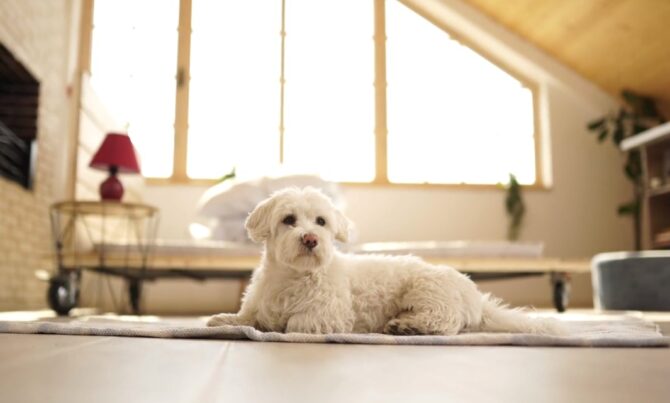
The Maltese’s petite size necessitates a diet that’s adequately balanced to prevent obesity, a condition to which they can be prone. They usually do well on high-quality, small breed specific dog food that can cater to their metabolic needs.
- Prone to Obesity
- Requires High-Quality, Small-Breed Specific Food
- Sensitive Digestive Systems
The breed also tends to have sensitive digestive systems, so a diet that is easy to digest and does not cause any allergic reactions or sensitivities is ideal. Regular monitoring of their weight and food intake is crucial to prevent health-related issues associated with poor diet and obesity.
Poodle: Balanced Diet and Regular Exercise
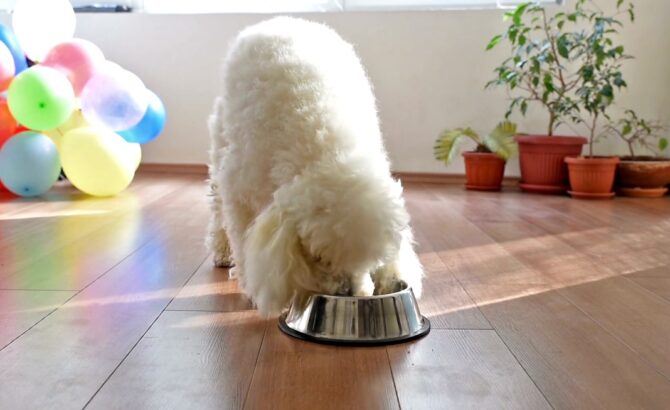
Given the Poodle’s active nature, a diet rich in proteins and nutrients is essential to maintain their energy levels. A balanced diet that includes high-quality dog food, suitable for their size and energy levels, is essential.
- Needs a Protein-Rich Diet
- Requires Adequate Nutrients for Energy Levels
- Balanced Diet is Essential
Poodles also require regular exercise to maintain a healthy weight. Monitoring their food intake and ensuring they get enough physical activity is essential to prevent obesity and associated health problems. A diet that meets their nutritional needs, coupled with regular exercise, will ensure a healthy and happy Poodle.
Lifespan and Aging
Considering the lifespan and the aging process of a breed is important for potential owners. Different breeds have varying lifespans and age differently, with specific needs arising as they grow older.
Maltese: Longevity and Aging Considerations

Maltese dogs have a relatively long lifespan, often living into their mid to late teens with proper care. However, as they age, they can develop various health issues, such as dental problems and joint issues, requiring regular veterinary check-ups and possible dietary adjustments.
- Long Lifespan with Proper Care
- Prone to Dental and Joint Issues in Old Age
- Regular Veterinary Check-ups are Essential
To ensure a healthy and fulfilling life for Maltese, providing preventative veterinary care, a balanced diet, and regular grooming can mitigate age-related health issues and maintain their well-being throughout their golden years.
Poodle: Aging Gracefully with Care
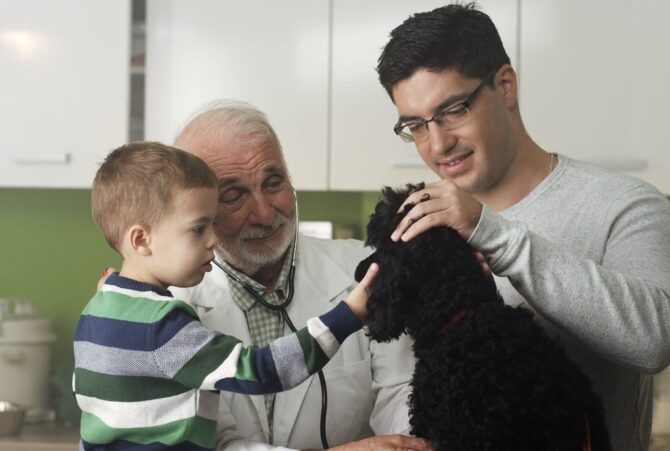
Poodles also have a long lifespan, particularly the smaller varieties, often reaching their late teens. Aging Poodles may face health issues such as arthritis and vision loss, necessitating adjustments in their lifestyle, diet, and veterinary care.
- Long Lifespan, Especially in Smaller Varieties
- May Develop Arthritis and Vision Loss
- Requires Adjustments in Lifestyle and Diet
Aging gracefully involves addressing the changing needs of Poodles as they grow older, including dietary modifications, accommodations for reduced mobility, and regular veterinary visits to monitor their health and address any arising concerns promptly.
FAQs
Are Maltese and Poodle mixes, like Maltipoos, common, and what are their typical characteristics?
Yes, Maltese and Poodle mixes, commonly known as Maltipoos, are quite popular. Maltipoos typically inherit the intelligence and trainability of the Poodle and the affectionate nature of the Maltese.
They usually have a wavy to curly coat that is low-shedding and hypoallergenic, making them suitable for allergy sufferers. Each Maltipoo can vary greatly in appearance and temperament, depending on which parent breed they take after more.
Which is more suitable for first-time dog owners, a Maltese or a Poodle?
Both breeds can be suitable for first-time owners, but Poodles, with their high intelligence and trainability, might be easier to manage, especially for owners who value obedience and are able to provide consistent training and mental stimulation.
However, Maltese can also be a great option for those looking for a smaller, affectionate companion and who can meet their grooming and companionship needs.
Do Maltese or Poodles have special dietary restrictions?
While no specific dietary restrictions are common to all Maltese or Poodles, individual dogs may have specific dietary needs or sensitivities. It is important to feed them high-quality, well-balanced dog food appropriate for their size, age, activity level, and health status.
Always monitor for any adverse reactions to food and consult with a vet to establish the most suitable diet plan for the individual dog.
How well do Maltese and Poodles adapt to living with other pets?
Both Maltese and Poodles generally adapt well to living with other pets, especially when properly socialized from a young age. Poodles are known for their sociable nature and tend to get along well with other dogs and pets.
Maltese are also usually friendly towards other animals, but their small size might make them vulnerable to injury when interacting with larger pets, so supervision is recommended during interactions.
How much exercise do Maltese and Poodles generally require?
Poodles typically require a moderate to high amount of exercise due to their energetic and intelligent nature. Regular walks, playtime, and mental stimulation are essential to keep them happy and healthy.
Maltese, on the other hand, have lower exercise needs. Short daily walks and regular playtime are usually sufficient to meet their activity needs.
Are there any significant differences in training Maltese and Poodles?
Yes, there can be significant differences in training the two breeds. Poodles are highly intelligent and trainable, responding well to various training methods and learning commands quickly, making them suitable for advanced training and dog sports.
Maltese can be sensitive and may require a more gentle and patient approach, with positive reinforcement methods being particularly effective. Consistency and early socialization are key for both breeds to curb undesirable behaviors and encourage social harmony.
Final Words
Choosing between a Maltese and a Poodle is not a decision to be taken lightly. Each breed offers unique qualities, catering to different preferences and lifestyles. The Maltese, with its luxurious coat and affectionate nature, is a perfect companion for those who can offer time and attention, while the intelligent and versatile Poodle is suited for a variety of lifestyles, especially for those who value an active and trainable companion.
Whether you value a petite and loving companion like the Maltese or an intelligent and adaptable friend like the Poodle, understanding their needs, characteristics, and predispositions will help you make the right choice for a fulfilling and harmonious relationship. Choosing a furry friend is about finding the right match, and both the Maltese and the Poodle have plenty to offer to the right owner.



